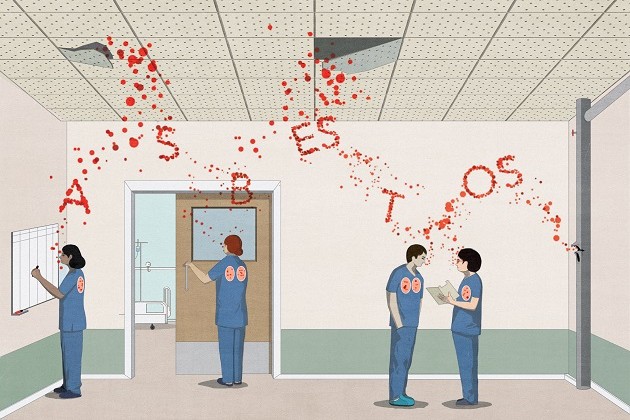Spot an image of a health care worker in the media and the chances are, that whatever they’re doing, they’re wearing gloves.
“Health care workers face a lot of visual imagery that doesn’t show glove use with its right function or purpose in real life,” says Rose Gallagher, RCN Professional Lead for Infection Prevention and Control.
“Nursing staff are shown wearing gloves while giving a vaccination, holding someone’s hand or pushing a trolley. None of these activities are likely to need gloves.”
While gloves are a fundamental and very necessary element of personal protective equipment, their use has risen exponentially. However, the risks they are there to protect against haven’t increased at the same rate, says Rose. “Glove use has become almost too commonplace now,” she says. “They are readily available – and we need that – but that means it can be challenging to confine their use to when they’re really needed.”
Going green for gloves
Launched by the RCN in 2018, Glove Awareness Week (GAW) aims to encourage appropriate glove use by raising awareness of sustainability factors and the importance of good skin health.
This year, GAW runs from 2 to 6 May. The RCN is highlighting how unnecessary glove use impacts the environment and will provide nursing staff with tangible actions they can take to reduce their inappropriate glove use.
Health care has a significant carbon footprint. It is responsible for 4-5% of global greenhouse gases globally. In the UK, the NHS creates 6.3% of England’s carbon emissions.
During the campaign, the RCN will be encouraging members, nursing staff and stakeholders to ‘make one change’ to reduce their glove use.
Harmful to hands
There are times when gloves should be worn and when their use is unnecessary – and in fact may be harmful. “Wearing gloves inappropriately can cause skin problems for staff and also prevent hand hygiene, putting patients at risk of infection,” explains Rose.
Ali Upton, Chair of the RCN UK Safety Representatives Committee, says that appropriate glove wearing is extremely important. “Inappropriate use can lead the hands to being in gloves for too long which in turn increases the risk of dermatitis,” she says.
An RCN survey published in 2020 shows that 93% of nurses had reported at least one symptom of hand dermatitis in the previous 12 months.
Staff who are unable to perform hand hygiene will not be allowed to work in clinical environments
“Prevention of this condition is therefore critical to protect staff and patients – and to retain health care staff and skills,” says the RCN’s guidance for staff on glove use. “Staff who are unable to perform hand hygiene will not be allowed to work in clinical environments and may be relocated from their usual workplace, impacting on staffing availability in that area.”
Ali says there are occasions when nurses wear gloves unnecessarily. “Sometimes gloves are worn when entering data onto tablets or computers. Hand hygiene is and should be preferable to glove wearing when completing administrative tasks,” she explains.
When is it vital to wear gloves?
“The most common needs are when you’re in contact with blood or body fluids, non-intact skin, mucous membranes, harmful drugs or chemicals,” says Rose.
While education on hand hygiene and glove use for pre-registration and non-registered staff is very good, difficulties arise when staff move from the classroom into practice, says Rose. “They can be faced with excessive glove use,” she says. “Evidence shows it can be hard to challenge as an individual. We created GAW in response to members who were telling us about their concerns.”
Empowering staff and making changes
Working with like-minded people in a supportive organisation is the key to creating long-lasting change, Rose believes. “Staff feel empowered when they see their organisation tackling this issue because they are very aware of it and see the volumes of waste being produced.”
That message is echoed in the , launched by Great Ormond Street Hospital (GOSH) in April 2018, which asks staff to risk assess before choosing whether or not to wear gloves.
Helen Dunn, nurse consultant for infection control at GOSH, says: “We’d identified through audit that one of the biggest reasons why staff weren’t washing their hands is because they were wearing gloves.”
How we treat our environment is really important
She admits GOSH hadn’t anticipated environmental factors would be one of the main reasons staff were persuaded to ditch the gloves. “But actually, the biggest reason they do is because of plastic,” she says. “We have young staff here and for them, how we treat our environment is really important. If anything, this awareness has grown even more here.”
Although they’ve not published figures during the pandemic, earlier results showed that glove use had reduced by an average of 36,608 pairs each week, compared to before the campaign began, equivalent to saving around £1,000, with plastic use reduced by 21 tonnes. “It’s staff that have made the changes on the wards – not us,” says Helen. “All the praise should go to them.”
Tips to challenge inappropriate glove use
- Think about one small change you can make, whether individually, in your team or your organisation.
- Give staff the power to make their own decisions.
- Engage everyone at the beginning, asking for their feedback before anything begins.
- Feed results back to staff, so everyone can see their progress.








